What Are The Top 14 Fish Sources And Vegetarian Foods Rich In Omega 3 Fatty Acids?
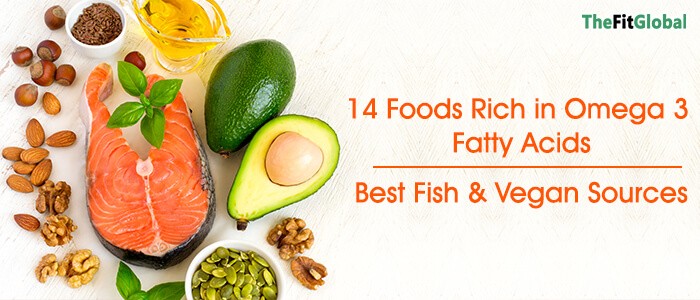
The ideal intake of omega-3 fatty acids for a healthy adult is 500 mg in a day and the limit of intake for people with heart diseases is 800-1000 mg per day
Fats and healthy? Yes! There are unhealthy fats like trans and saturated fats and there are healthy fats like monounsaturated and polyunsaturated fats. Omega-3 fatty acids are a kind of polyunsaturated fats that our body cannot synthesize on its own. You don’t need supplements either. Here are 14 amazing foods rich in omega 3 fatty acids to enhance your overall health!
Table of contents
Why do we require Omega-3 fatty acids?
Types of Omega-3 fatty acids!
Foods rich in Omega 3 fatty acids
Why Do We Require Omega-3 Fatty Acids?
Certain vitamins like A, D, E, and K are fat soluble. So, we need right amounts of omega-3 fatty acids to get these vitamins properly absorbed by our body!
Furthermore, omega-3 fatty acids help in
- The production of certain hormones that help in better clotting of blood
- Better functioning of the heart
- To boost our brain function
- To improve eye health
- Fight inflammation
- To prevent cancer
- To promote a good quality sleep
- To promote healthy skin
- To reduce menstrual pain and
- To improve bone health
Omega-3 fatty acids are further classified into three different types!
Types Of Omega-3 Fatty Acids!
DHA, EPA, and ALA are three different types of omega-3 fatty acids. Here is a simple explanation of these fatty acids and their active function!
DHA (Docosahexaenoic Acid) – Both adults and infants require DHA for the healthy functioning of the brain. In fact, DHA is required for quick learning! Deficiency of this chemical results in slow learning and other diseases like Attention deficit hyperactivity disorder, cystic fibrosis, fetal alcohol syndrome, cystic fibrosis, unipolar depression, and aggressive hostility. (1)
ALA (Alpha-Linolenic Acid) – ALA is known to benefit heart and blood vessels to a huge extent. Surprisingly, most of them take Alpha-linolenic acid to prevent cancer. (more commonly prostate cancer).
It is also used to treat diseases like multiple sclerosis, renal disorders, rheumatoid arthritis, diabetes, Chron’s disease and other common skin conditions such as psoriasis and eczema. (2)
Nuts such as walnuts, vegetable oils such as canola oil, soybean oil, flaxseed oil, dairy products, and red meat are the best sources of Alpha-linoleic acid.
EPA (Eicosapentaenoic Acid) – EPA is used to treat pregnancy-related risks, macular degeneration, depression, heart diseases, brain disorders, kidney disorders, menstrual problems, high cholesterol, hay fever, breathing disorders like asthma and arthritis. (3)
Fish oil is the best source of EPA
Foods Rich In Omega 3 Fatty Acids
Here are 14 incredible foods high in omega 3 fatty acids to be included in your daily diet to make your living much better.
Fish Sources
1. Cod Liver Oil
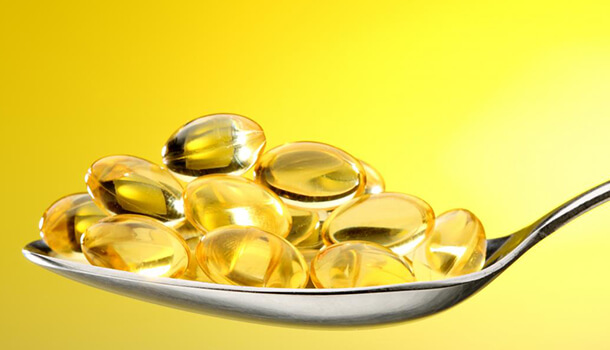
One tablespoon of fish oil which is around 14 grams contains 2664 mg of cod liver oil which helps you meet 532% of your daily omega 3 requirement.
It might sound bizarre but cod liver oil is something that is extracted from the tissues of Atlantic cod. Apart from being the best source of omega-3 fatty acids, it is the best source of two other important nutrients – Vitamin D and Vitamin A.
It is not recommended to take more than half a tablespoon of cod liver(4) oil per day since there are excess quantities of vitamin A, Vitamin D and omega-3 fatty acids in cod liver oil!
Taking just one tablespoon exceeds more than 100% of your omega-3 fatty acids, vitamin D and Vitamin A requirement.
2. Salmon
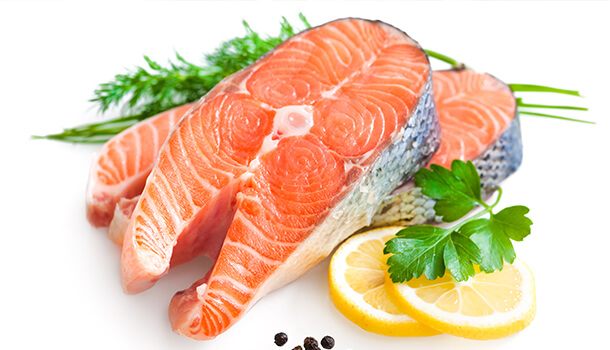
One ounce of Salmon (which is around 28 grams) gives you 633 mg of Omega-3 fatty acids(5) which helps you meet 126% of your daily omega 3 requirement.
Apart from Omega-3 fatty acids, salmon is also a good source of proteins, Vitamin B12, selenium and Niacin. Selenium is essential for preventing cancer, improving thyroid functioning and strengthening your bones.
In fact, research has proved that consuming salmon at least two times a week could increase the levels of selenium among a group of people! (6)
Salmon is a great source of two different types of omega-3 fatty acids – DHA and EPA which can reduce your blood pressure levels, decrease the chances of cancer and also reduce the inflammation apart from helping you maintain healthy arteries.
3. Sardines
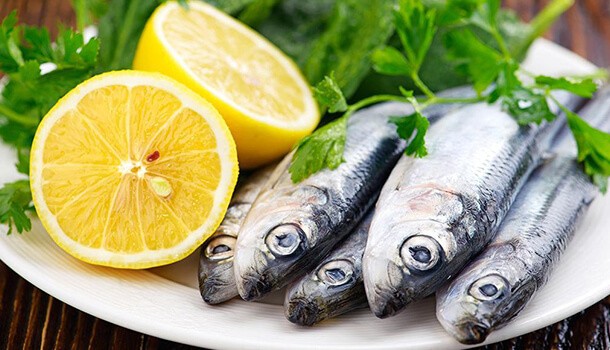
One ounce of sardines (which is around 28 grams) contains 414 mg of omega-3 fatty acids (7) which helps you meet 82.8 % of your daily omega 3 requirement.
Regular consumption of Sardines protects you from various cardiovascular diseases! (8)
Also, sardines can reduce the risk of Type-2 diabetes, reduce inflammation and improve gut microbes. (9)
Sardines benefit those people who have a history of a heart attack because they keep the blood pressure in control and also reduce the risk of blood clots!
Apart from omega-3 fatty acids, sardines are also a good source of vitamin B12, selenium, proteins, vitamin D and phosphorous.
They provide us body with almost each and every nutrient that our body usually requires for healthy functioning.
4. Mackerels
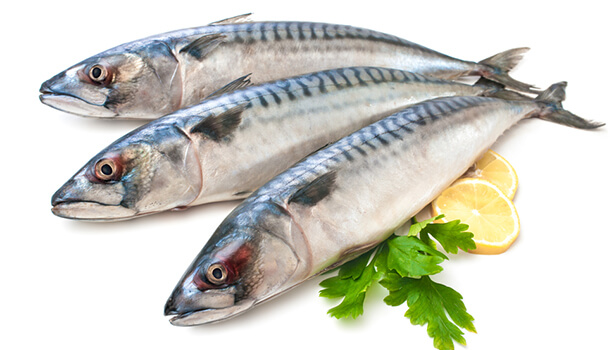
One ounce of mackerels (around 28 grams) contains 748 mg of omega-3 fatty acids(10) which fulfills 149.6 % of your daily omega 3 requirement.
Mackerels are delicious to taste and they do not require much time to prepare. Mackerels are also a great source of other important nutrients like vitamin D, vitamin B12, selenium, and Niacin.
Experiments and studies conducted on the consumption of mackerels and their effect on health proved that there was a decrease in blood pressure due to the consumption of Mackerels.
Furthermore, mackerels also increase the amount of good cholesterol (HDL) and decrease the amounts of bad cholesterol (LDL), thereby stabilizing your over cholesterol levels. (11)
Mackerels prevent some common skin disorders like eczema and psoriasis and also help in clearing age-related spots and wrinkles. They improve your hair growth, improve bone strength and also boost your immunity.
5. Herrings
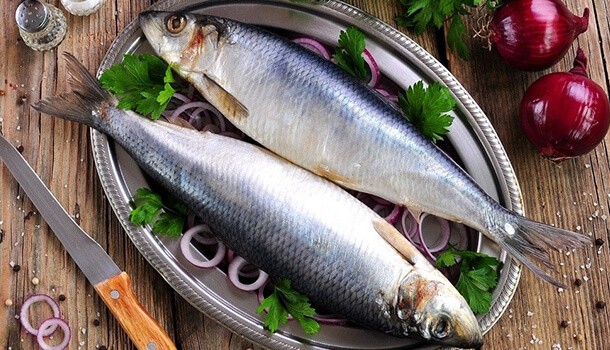
One ounce of herrings (around 28 grams) provides 484 mg of omega-3 fatty acids(12) which helps you meet 96.8% of your daily omega 3 requirement.
The presence of Omega-3 fatty acids in Herrings prevents the risk of metabolic syndrome which in the long run can make you susceptible to heart diseases. (13)
Metabolic syndrome is a group of conditions like high blood pressure, elevated blood sugar levels, the presence of excess cholesterol and triglycerides, increase in the body fat which can increase the risk of cardiovascular diseases on the overall!
Apart from being one of the best omega 3 fatty acids foods, herrings are known to boost the immune system, keep you energized, decrease the risk of Alzheimer disease, prevent the risk of cancer and improve your nervous system.
6. Why Are Caviars The Best Source Of Omega 3?
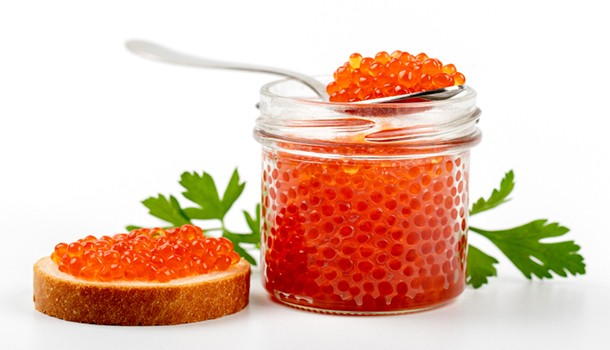
One tablespoon of Caviars (which is around 16 grams) gives you 1086 mg(14) of omega-3 fatty acids which fulfills 217% of your daily omega 3 requirement.
Caviar(15) or Roe is a mass of eggs that are present in the ovary of a female fish and surprisingly, these are edible. They are used as a spread or used for garnishing purposes when they ripe.
Caviar is also an excellent source of vitamin B12(16) which is essential for the proper synthesis of DNA and production of energy.
The proper intake of Omega-3 fatty acids enhances your heart health and boosts your brain health. The healthy fats are also known to reduce the risk of diabetes(17) because they decrease insulin resistance.
Insulin resistance is a condition in which the cells fail to respond to the activity of the insulin hormone which eventually results in the increase of blood sugar levels!
7. Halibut
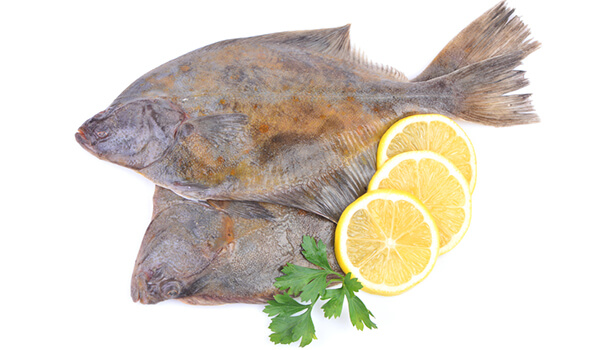
One ounce of halibut (around 28 grams) contains 187 mg of omega-3 fatty acids(18) which fulfills 37.4% of your daily omega 3 requirement.
Halibut is a kind of Atlantic fat fish which is considered as the largest one among the fatty fish types. Though halibut contains omega-3 fatty acids in little amounts, pregnant women may have to prefer other sources of omega 3 fatty acids since Halibut gathers mercury inside its body.
It is more likely for larger fish to gather more amounts of mercury from the contaminated water into their bodies.
You can still consume Halibut in moderate amounts to enjoy some best benefits like a gradual decrease in the inflammation, a healthy heart and a high-quality protein intake.
8. Tuna
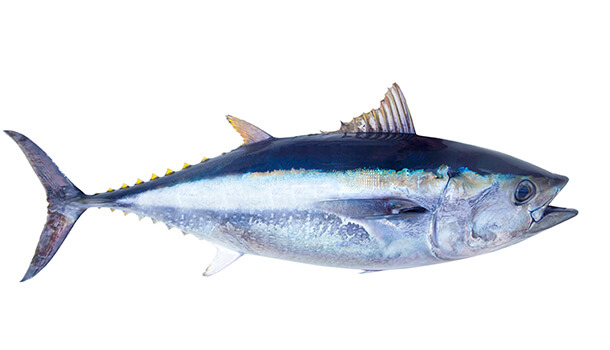
100 grams of cooked Tuna contains 281 mg of omega-3 fatty acids(19) which helps you meet 56.2% of your daily omega 3 requirement.
Apart from Omega-3 fatty acids, Tuna is an excellent source of Niacin, vitamin b6, vitamin b12, selenium, phosphorous and sodium.
Regular consumption of Tuna can control your blood pressure, help in weight loss, strengthen your immune system, improve your bone strength, enhance your skin health and also prevent the risk of cancer.
Fitness enthusiasts and those who are looking forward to building good muscle strength are advised to include tuna into their diet since Tuna is low in calories, retains muscle strength, keeps you full for long periods and is low in fat.
9. Trout

One ounce of cooked rainbow trout provides 329 mg of omega-3 fatty acids which meets 65.8% of your daily omega 3 requirement.
According to the natural resources defence council, trout is one among those healthy fish that is low in mercury which makes it one of the best foods high in omega 3 fatty acids to be included into your diet.
Omega-3 fatty acids can decrease the risk of neurological disorders, protect your heart health, boost your immunity and also prevent the risk of cancer.
Moreover, rainbow trout is a good source of vitamin B12 and proteins. Trout is extremely low in calories (2% RDA) and fat (3% RDA) which makes it the best weight loss food.
Omega 3 Foods Vegetarian Sources
10. Soybeans
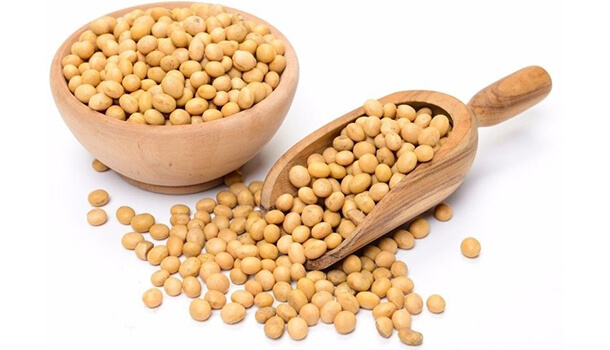
One cup of soybeans (which weighs around 186 grams) provides 2473 mg of omega-3 fatty acids which fulfils 494.6% of your daily omega 3 requirement.
Vegetarians can choose soybeans as their best source of omega-3. In fact, soy proteins have a huge positive impact when compared to animal products.
Substituting animal products with soy products can reduce the fat cells called triglycerides, reduce the amount of bad cholesterol (LDL) and also decrease the overall cholesterol. (20)
Soy proteins are also known to decrease the body weight and keep the blood sugar levels in control, thereby preventing the risk of both diabetes and obesity.
Soybeans are the best source of vitamin K, thiamin, riboflavin, folate, calcium, Iron, magnesium, phosphorous, potassium, zinc, copper and manganese.
Genistein which is a kind of phytochemical present in soy can reduce the risk of cancer.
11. Canola Oil
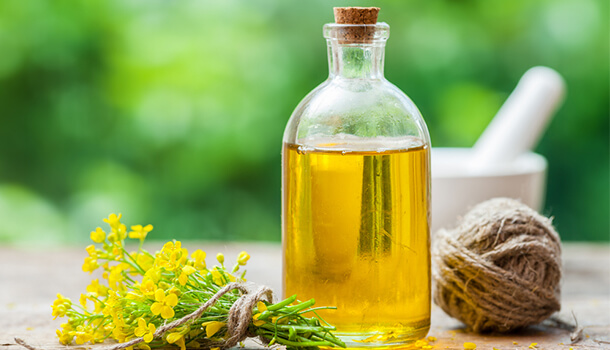
One cup of canola oil (218 grams) provides 19921 mg (21) of omega -3 fatty acids which fulfil 3984% of your daily omega 3 requirement.
Apart from being the best source of omega -3, canola oil is an excellent source of vitamin K and vitamin E.
Canola oil is also low in saturated fats which can positively influence the blood lipids and reduce the chances of coronary heart diseases. (22)
The abundance of vitamin K helps in a better wound healing, has anticancer properties and can also help in strengthening your bones. (23)
Vitamin E present in the oil can also improvise your skin health by protecting your skin from the radiations of sun and acting as free radical scavengers. (24)
12. Flax Seeds

One ounce of flax seeds (28 grams) contains 6288 mg of omega 3 fatty acids which fulfil 1257.6% of your daily omega 3 requirement.
Flax seeds(25) may appear minute but these make the perfect vegan sources of omega 3 fatty acids. Flax seeds contain lignans which exhibit anti-cancer properties.
Though, there are other sources of lignans like whole grains, sesame seeds, vegetables and fruits, the presence of lignans in flax seeds is 100 times greater when compared to other sources. (26)
Flax seeds can suppress your appetite, thereby promoting a healthy weight loss.
13. Chia Seeds
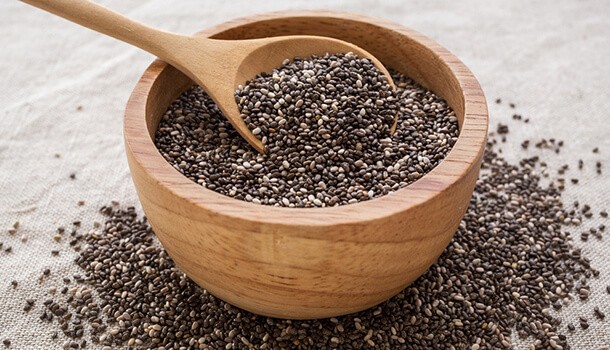
One ounce of chia seeds (28 grams) contains 4915 mg of omega-3 fatty acids which help you meet 983% of your daily omega 3 requirement.
Apart from omega 3 fatty acids, chia seeds are highly rich in antioxidants, omega-6 fatty acids, dietary fibre which is why they are used to prevent various diseases like obesity, cancer, diabetes, heart diseases and hypertension. (27)
Chia seeds can fight heart diseases, control diabetes, help in easy digestion, prevents constipation and also assist in weight loss.
14. Walnuts
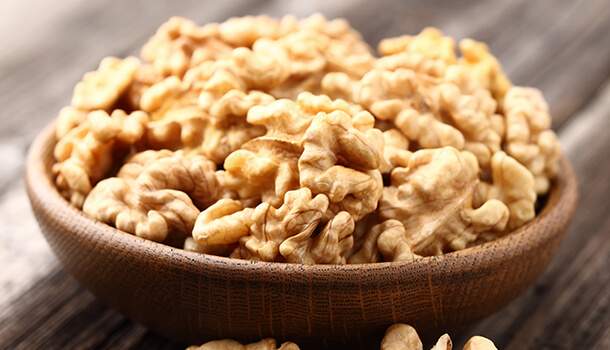
One tablespoon of walnuts (14 grams) provides 1404 mg of omega 3 fatty acids which fulfil 280% of your daily omega 3 requirement.
Omega-3 fatty acids in walnuts can prevent inflammation, improve your gut health and prevent the risk of cancer.
ALA is the special type of fatty acid present in walnuts which prevents age-related disorders like diabetes, kidney problems, multiple sclerosis and Chron’s disease and also prevents certain chronic skin disorders like psoriasis and eczema.
Along with the healthy fats, walnuts contain certain healthy compounds like polyphenols and vitamin E.
Walnuts also contain antioxidants which can prevent the risk of cancer, protect your heart from cardiovascular diseases and other neurological disorders. (28)
Bottom Line
Fish sources are usually considered as the best foods rich in omega 3 fatty acids. Considering herrings, salmons, sardines, mackerels, cod liver oil and caviars into your diet (at least twice a week) can provide plenty of these healthy polyunsaturated fats.
Pregnant women must stay away from Halibut though it is a good source of omega-3 fatty acids because of the presence of mercury in this variety of fish.
Tuna and salmon are particularly low in mercury!
Best vegan sources of omega 3 fatty acids include soybeans, flax seeds, chia seeds, canola oil and walnuts.

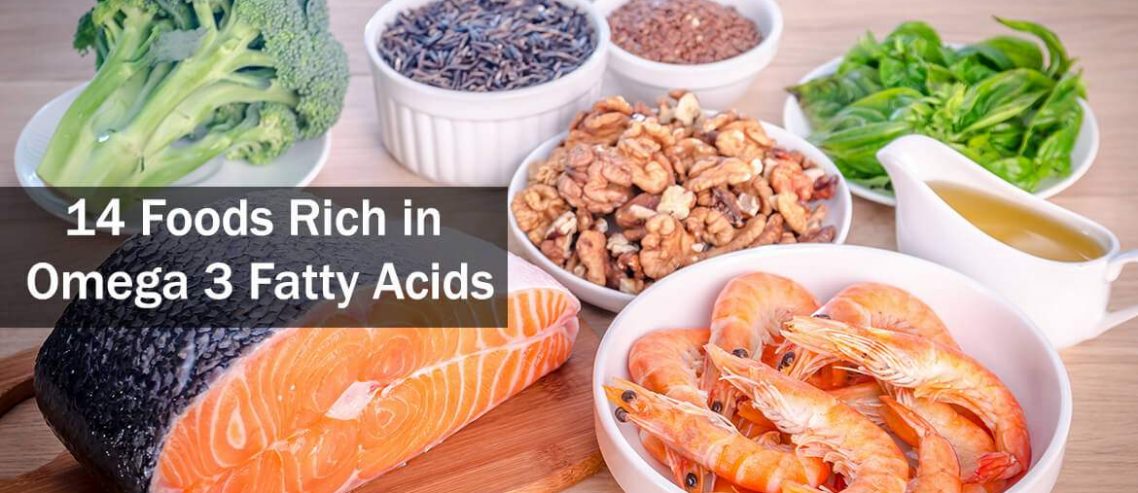

Comments
Leave a Comment